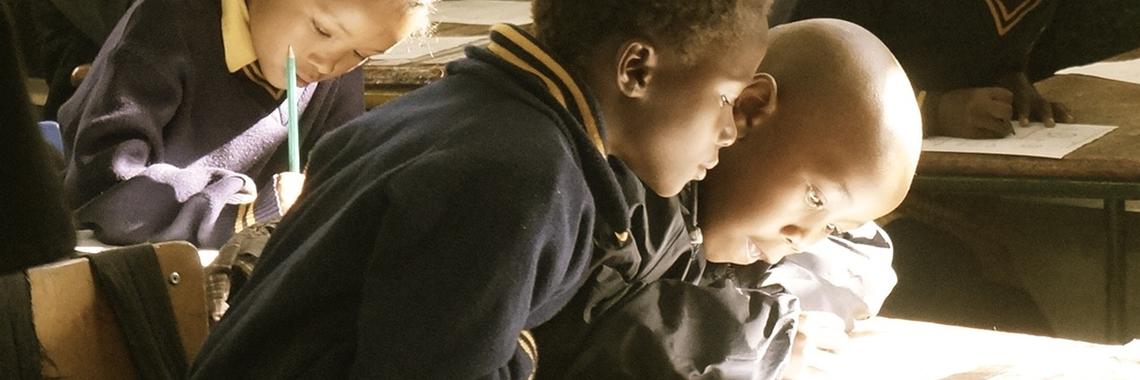With faculty and visitors from across the world, the Institute’s vibrant Visitors' Programme reflects its global approach to population ageing.
Overview
We offer the opportunity for academics and those from the corporate and policy/practice world as well as students to spend a period of independent self-directed study and research, with the support of specifically assigned researchers at the Oxford Institute of Population Ageing as mentors. The main purpose of the Visitors' Programme is to enhance the academic work (research) of the Institute as well as the visitor’s by mutual exchange and learning.
During the Covid-19 pandemic, the Institute has operated a Virtual Visitor Scheme which has enabled visitors to engage in the normal visitor activities digitally. This has proved very successful (see Reflection from our visitor Emily Schuler) and we have therefore decided to offer this opportunity moving forward. Reduced fees would apply. In an application, please state clearly that you wish your visit to be virtual.
The Institute offers:
- Workspace with either a fixed pc or a laptop port, according to individual requirements, together with IT facilities and support
- Library access
- University card
- Access to general seminars across the collegiate university
- An academic mentor
Application process:
We invite various categories of applications - Professors, Research Fellows, Post-Docs and Students - as well as interested candidates from community organisations and the corporate world. With the Institute’s focus on global population ageing, we particularly welcome applications from abroad. Applications are received all year round and its acceptance is dependent on the relevance to our key research themes.
Visits may range from a few days to one academic year. Non-EU, non-EEA or non-Switzerland applicants can maximum visit for 6 months. Admission to the Visitors' Programme is competitive and usually limited to no more than fifteen visitors during each term.
All visitors should in the first instance contact Dr George Leeson (george.leeson@ageing.ox.ac.uk) for information or see below for more detail and forms.
Application forms for academic and student visitors are below.
Fees and funding:
Visitors are required to pay a non-negotiable bench-fee for each academic term of stay to cover resource costs. This fee does not include costs related to travel, accommodation and other personal living expenses. The majority of visitors are self-funded through personal bursaries, support from funding bodies or from corporate or policy bodies
The Oxford Institute of Population Ageing is, however, committed to annually sponsor, through designated bursaries, two emerging researchers. The Leslie Kirkley programme (non-OECD countries) and the James Martin programme (OECD countries) offer a bursary for the payment of the bench-fee for one term but do not cover the costs of travel, accommodation and other personal expenses. For further information on these visitors' programmes, please see below.
We look forward to welcoming you to Oxford!
Essential Downloads
Academic visitor
Academic visitors generally hold an academic appointment at a university elsewhere and visit the Oxford Institute of Population Ageing to pursue their research agenda within one of our research programmes or within the Institute more generally. Practitioners likewise will visit to collaborate in joint research with our academics. Post-doctoral applicants are also welcome. Visitors will normally be given the title of ‘Visiting Research Scholar’ and will use this title in all references to their association with the Institute and the University of Oxford.
You may need a visa to come to the UK to visit, study or work - check if you need a UK visa.
You would need to contact the Administrative Officer (administrator@ageing.ox.ac.uk) well in advance of the proposed visit start date in order to discuss visa arrangements. You will need to wait until accepted as a Visitor before applying for a visa. Once accepted we will provide a letter of support to facilitate visa application. The following will apply:
- If you will not be undertaking paid employment as part of the visit, you will need to apply for a Standard Visitor visa (https://www.gov.uk/standard-visitor-visa)
- If you will be collaborating on a research project and receiving a salary from us during the visit, you will need to apply for a Tier 5 Temporary Worker - Government Authorised Exchange visa (https://www.gov.uk/tier-5-government-authorised-exchange); the University will need to assist with the submission of the application.
If you wish to apply for association with a college for the duration of the visit, you will need to contact the relevant college directly. There is probably a separate fee for college association: details on individual college websites.
Student Visitor
Student visitors would be outstanding doctoral students who wish to benefit from Oxford’s vibrant research culture and contribute to the activity of the Institute. The student visitor programme exists to allow doctoral students the opportunity to work with leading academics and professionals. Student visitors cannot attend course-specific classes whilst in Oxford.
If you’re an EU, European Economic Area (EEA) or Swiss citizen, you can visit the UK to study at an accredited institution for up to 6 months. More details: check if you need a UK visa.
If you’re not an EU, EEA or Swiss citizen, you would need to contact the Administrative Officer (administrator@ageing.ox.ac.uk) well in advance of the proposed visit start date in order to discuss visa arrangements. The length of stay must be:
- Less than six months: In order to visit the UK you will need a letter of support from the Institute, confirming the visit. The letter of support will facilitate entry to the UK as a Short-Term Student Visitor.
The Leslie Kirkley visitor for scholars/policy makers/practitioners from non OECD countries
The Institute is able to annually sponsor emerging researchers and those from the corporate and policy / practice world from Latin America, Asia, Africa and Eastern Europe (from non-OECD Countries) through a designated bursary. These visits are for one academic term only and the bursary does not include costs related to travel, accommodation and other personal living expenses.
The James Martin Visitor for scholars from OECD countries
The Institute is able to annually sponsor emerging researchers and those from the corporate and policy / practice world from OECD Countries through a designated bursary. These visits are for one academic term only and the bursary does not include costs related to travel, accommodation and other personal living expenses.
OxFEE Visitor’s Programme
The Oxford programme on Fertility, Education and Environment broadly explores the population change in developing countries.
Applications will be considered on an ongoing basis and the Institute is committed to sponsor candidates through designated bursaries. Visitors will independently work on any one or more of the Oxford Programme themes. The duration of the visit will depend on specific visa regulations but a period not less than 3 months is preferred.
Applicants must provide:
- A completed application form
- A current CV
OxFEE Visiting Associates (research /policy /practice background):
OxFEE Visiting Fellows (on post-doctoral level):
The Institute is inviting applications for graduate students from IARU group Universities for 2023 Internship in Oxford - Multi-disciplinary research on different aspects of population ageing.
Apply by 1 April 2023
Funding:
Stipend
Duration of Internship:
From one week to three months.
This internship can take place any time of year – as indicated in the application form, students should specify what timing would work best for them.
Application to include:
- Application form
- Two letters of support
- CV
Contact: nana.nanitashvili@ageing.ox.ac.uk
IARU Internship Application Form
Reflections
_square_md.jpg)
Catholic University of Pernambuco, Brazil
Although my visiting period at the Oxford Institute of Population Ageing was in the midst of the global Covid-19 scenario, I can assure that it was a valuable and most certainly mind-opening experience. During the three terms 20/21 in which I was able to participate in the activities of the Institute, my mindset regarding global ageing has developed, taking into account multiple variants and different contexts.
The individual meetings with Dr. George Leeson have improved my doctoral project, as well as brought to my attention interdisciplinary perspectives and developments, which led to the writing of two articles with a wider approach to ageing and its different links to culture, society and family. My doctoral project was also positively influenced by presenting the idea and preliminary results at the Family and Friends discussion group with Professor Sarah Harper and other colleagues, that gave me valuable insights to explore on the subject. I would also like to highlight the support given to the visitors in our visitors group, where we could go more deeply into different questions regarding the development of our projects, research, data collection and presentation methods.
The informal seminars series, as well as the formal seminars were a great opportunity to connect and hear researchers from all around the world, something made possible by the online format. While the formal seminars focused on global ageing, in the informal ones we considered various themes such as Ageing in Latin America (LARNA Seminars), Evaluation in Research, and also workshops for early career academics. The interdisciplinary environment created by the institute is very fruitful for discussions and makes us feel comfortable in sharing ideas. Having the opportunity to discuss with other researchers and scholars from other nationalities is of great value, as we can draw learn from those national studies and develop our own ideas for possible further studies.
I can only thank the Institute for the wonderful opportunity to visit and to feel part of it, enriching my academic experience. I am happy to say that on top of all the academic knowledge and insights that I got, it was also a time to get to know very interesting people, make connections for possible future research and make new friendships. I hope to be able to visit again!
_square_md.jpg)
Ewha Womans University, South Korea
Thanks to the Oxford Institute of Population Ageing, I was a visiting student for three months from December 2019 to February 2020. The institute conducts many studies related to the ageing society, such as ageing workforces, preparing for later life, the role of older workers, financial security in old age, and Poverty and vulnerability among older people. With completing my Ph.D. project, studying at this institute and experience of the University of Oxford was a valuable opportunity for me to introduce the working environment of Korean elderly care workers in the ageing society and to develop my doctoral dissertation. Through the weekly formal and informal seminar series held at the institute, I was able to learn multi-disciplinary approach and discussion around ageing and demographic issues. Also, I give special thanks to my mentor Dr. Sara Zella. She had a lot of time to discuss how my PhD project which related to precarious care workers and their occupational safety and health could be developed into an academic paper as well as help me to adjust to the life in this institute. In the era of changing population structure and increasing needs of care caused by aging and age-related diseases increased, it has great importance not only to provide social care for these people but also to discuss the social rights for care workers. In Korea, which is experiencing the fastest ageing in the world, the Long-Term Care Insurance (LTCI) policy was introduced in 2008. The government established a national qualification system of Elderly Care Workers (ECWs) called Yoyangbohosa as service providers in this system, and mostly female middle-aged workers have concentrated in this labor market of institutionalized care work. However, according to previous studies, female home-based elderly care workers in Korea are working in a poor working environment characterized by low wages, employment insecurity, income insecurity, and exclusion from social insurance. Also, they are experiencing various occupational risks and related health problems not only like various musculoskeletal disorders, but also like sexual harassment, verbal abuse, and assault from service users (beneficiaries) or their family. Besides, a social safety net to protect workers from industrial accident and illness, such as Occupational Safety and Health and Industrial Accident Compensation Insurance have been focused mainly on material physical risk of large-scale firms in the manufacturing sector. Thus, occupational hazards of home caregivers who work at different beneficiary’s house are difficult to be prevented and regulated through the traditional social policies in the welfare state. Thus, discussions should be actively proceeded on how to secure workplace safety and provide social protection for increasing care workers as well as on how to social care in the ageing society. Experience of the Oxford Institute of Population Ageing gave me access to expert faculty members as well as seminars and workshops organized by OIPA. The institute offered me rewarding opportunities to receive feedback from eminent scholars, develop ideas for better research results, broaden my research perspectives to a global context, and build a network of people working on similar issues. I thoroughly enjoyed the diverse types of opportunities offered and am thankful that I took the time to choose this visiting program. I would strongly advise any doctoral students and professionals in this field who are looking to enhance their international ability and to advance their academic careers.
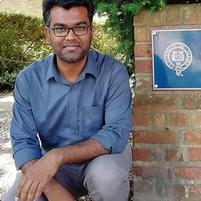
Relations significant in aid efforts for older poor people
Owasim Akram
Owasim Akram’s research focuses on older extreme poor people in Bangladesh. During the spring he spent three months in Oxford as a visiting PhD student to work on his study on factors that influence the outcome of aid efforts for this group. The results show that good family relations and access to some form of government safety net are decisive for lifting people out of poverty.
Over a period of five years, Owasim Akram has, as part of a research team, followed 72 households in Bangladesh living in extreme poverty. He collected data about their lives and studied the reasons why people live with an income even far less than USD 1.90 a day, which is the international poverty line, set by the World Bank.
“I want to analyse poverty among older people from an overall perspective, from birth to the present. This is something that is often not highlighted in ageing research,” he says.
Designing aid efforts
Owasim Akram is one of 16 doctoral students within the Newbreed programme, which is part of Örebro University’s strategic initiative for interdisciplinary ageing research – Successful ageing. In his research, he is not only interested in measuring poverty in numbers, but also wants to add a subjective dimension to the subject. He himself has experience of working with poor people via the children’s rights organisation Plan, the aid organisations ADD International and Oxfam, as well as the EU’s aid programme in Bangladesh.
“What we as humans value in life varies from person to person. When evaluating aid efforts for poor people, it is therefore important to consider what sort of changes took place in terms of people’s happiness, social capital and dignity.”
In the future, he is hoping his research will be used to design even better and more effective policies and programmes for people living in extreme poverty.
“For aid efforts to work at an optimal level, it is vital that we understand people and their needs. My research contributes with knowledge of practical experiences of poverty reduction programmes in developing countries, an area where there currently is a substantial knowledge gap.”
Oxford gave invaluable experiences
Owasim Akram is very pleased with the time he spent at University of Oxford in England. In addition to having worked at the Oxford Institute of Population Ageing, at one of the world’s most renowned institutes for ageing research, he has made invaluable connections for the future.
“As a researcher there, you have access to immense resources. It is not just about gaining knowledge, but also about the opportunity to access their large network of researchers, both in Oxford and at other universities.”
The next step for Owasim Akram was to study what happened when people aged 50 and over from these households received financial support. Did their quality of life improve? If so, what factors contributed to the positive development ?
“In cases where aid efforts did make a difference, two conditions were present. The first was good family relations and the second was that the persons in question had access to some kind of government safety net. It may have been as little as five euro a month, paid by the government, but it did make a difference,” explains Owasim Akram.
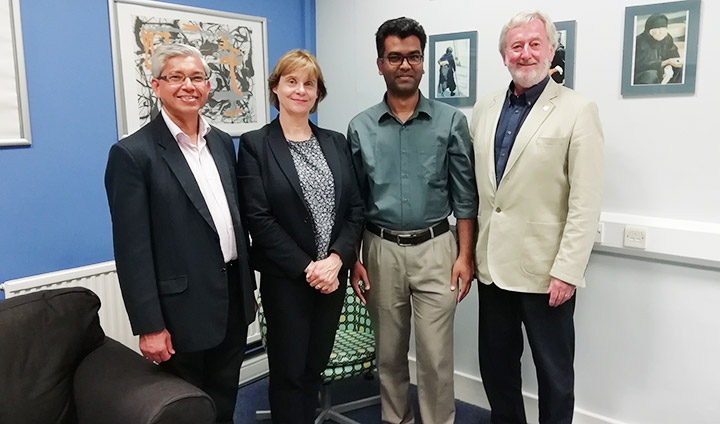
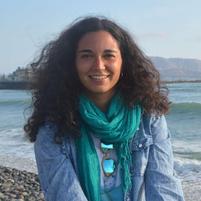
Reflections
Thanks to the CERU ON THE MOVE scholarship and the Oxford Institute of Population Ageing, I was in the Institute as a visitor for three months, which coincided with the Michaelmas Term 2019. This was one of the most fruitful experiences in my PhD life.
I would like to highlight the friendly environment in the Institute. I can assure that from the first day I felt welcomed. Both more experienced and less experienced researchers were easy to approach, which allowed me to learn about a variety of different research projects at the Institute. Specially, I would like to say thanks to my supervisor, George Leeson, whose advice was very helpful for my research, and in addition he was always so kind.
The international dimension of the faculty and visitors as well as the research at the Institute was something which I particularly enjoyed. I shared work space with researchers and students from different parts of the world: China, Singapore, Malaysia, South Korea and Italy, among others, and in my opinion, it was very enriching because, beyond the research work itself, connecting with international people with similar interests is so important.
During my visit I was able to attend both informal and formal seminars at the Institute. The formal seminars are open to the public and the term’s seminars addressed Older Women’s Health and, although this was not related directly to my own research topic, I enjoyed the presentations and discussions and of course some parts proved to be very useful for my own research. The informal seminars, which are for members of the Institute only, provided a good opportunity for me to learn about the work of other visitors and researchers. In fact, all of the Institute’s visitors are asked to make a presentation about their work at some point during their stay. Having the opportunity to present my work was useful because I received really useful feedback.
The Oxford environment was something that I appreciated greatly. The libraries, the colleges, the seminars…the whole city is one big University and that is so nice. My favourite library was the Radcliffe Camera, where I spent a lot of time, especially in the afternoons. Working there – where so many people have studied and researched before – was a truly inspiring experience in itself.
I feel that this experience gave me new knowledge and opened my mind to the international research world and because of this, I would like to say thanks again to everyone at the institute, to the Institute’s visitors and to the SRUK CERU (Society of Spanish Researchers in the United Kingdom). In fact, I look forward to returning soon and I am already exploring opportunities to make this possible.
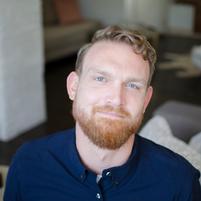
IARU Internship Reflection
I came to graduate school with an agenda to effect social change and an open mind to learn from others who share that mission. I am a social worker by training, nearly half way through a dual masters in Social Welfare and Public Health at UC Berkeley. With an earnest interest to make the most out of my academic career, I applied to spend my summer break as an IARU Intern at Oxford—the Institute was a perfect fit because its collaborative approach to issues surrounding population ageing yielded opportunities for me to apply my social welfare perspective to advancing knowledge in the field.
Scholarship is a team effort. Embarking on any new project brings with it new challenges, and the Institute took special care to connect me with a research project that matched my interests and time in the program. As an American orienting to both new research and a new geographical context, mentorship provided by Institute faculty was an essential part of the learning process. The Institute takes a wide angle view on population ageing and benefits from its multidisciplinary perspective. I was impressed by the Institute’s seminar topics, which not only focused on long-established ageing issues like health and economics, but also incorporated emergent applications from big data and machine learning. Oxford University brings together a range of backgrounds and viewpoints, and the Institute is no exception. Weekly seminars, delivered by experts and students alike, gave me an opportunity to learn about and discuss current research in various fields, and highlighted the Institute’s regard for innovation and new perspectives as part of the collaborative process.
There’s no place like Oxford. Its dreaming spires, ancient library reading rooms, and traditions of rigorous scholarship inspire a context to engage in thoughtful study. The city has an abundance of attractions to see and meadows to stroll, and strikes a comfortable balance between active and serene. Research and writing is hard work for me, so environment matters. Few places offer such a density of opportunities to immerse in study, and Oxford delivered for me.
Above all, I believe the most valuable takeaway from my experience was the research itself and the collaborative relationship-building behind it. I spent 6 weeks researching homelessness among ageing populations in the UK, which is a generous amount of time to be immersed in a single topic. I feel a sense of accomplishment to have expanded my understanding in a critical part of my field with such attentive detail, and I feel a sense of humility to have learned from others who have dedicated their efforts to such work. The project gave me an opportunity to exercise critical thinking about issues critical to my role as a social worker, which will no doubt serve my clients well. The Institute supported my mission to effect social change through furthering my training in research and ageing. It was an experience like no other—one I will carry with me for the betterment of my professional skill and the clients I serve.
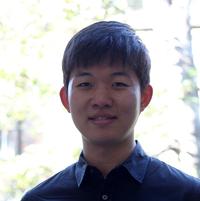
IARU Internship Reflection
The first time I got interested in the Oxford Institute of Population Ageing was after reading some articles and books written by Professor Sarah Harper. As a master’s student in Comparative Social Policy looking at comparative pension system, the key issues of my research included demographic transition and fertility challenge in South Korea and most of western welfare states. Her research was very helpful in understanding social and economic challenges of population ageing.
I came to some of the weekly seminars hosted by the institute, and they provided further insights in broad topics of population ageing. The seminars involved multidisciplinary topics including health, social care, poverty, gender inequality and a wide variety of policy cases from all over the world. The invited speakers were very competent researchers and the seminars were a nice place to build networks in this field. That is why I decided to apply for the IARU internship in the institute.
Unfortunately, I was only available in off-term time for the internship, and there has not been many seminars going on in this period. However, the UKRI Industrial Strategy Challenge Fund Healthy Ageing Workshop organised by the institute was amazing. This grand project gathered all stakeholders of healthy ageing challenge, from academia, business, public sectors and charities. The idea of constructing a business model for industries to support ageing population was original for people like me who have always been approaching this issue from public policy perspective. But I still recommend that potential applicants apply for the internship during term-time as there would be much more events going on.
Another amazing experience during my internship was an opportunity to collaborate with the members of this institute. I started research on the employment and well-being of older women in the UK and South Korea, in collaboration with Dr Sara Zella and Prof Sarah Harper. I have mostly conducted data analysis of the two countries, and the advice I got from Dr Zella was very helpful and expanding my knowledge. Even after finishing my internship, I am still continuing the affiliation with the institute until this project is done, which is also exciting.
Finally, one part of my job was to be one of the managing editors of the Journal of Population Ageing. My task was to read submissions and allocate them to appropriate reviewers. Though it was not a tough job, learning the process of reviewing and publishing journal articles was very useful for an early career researcher like me. I could surely say that my knowledge and experience in this field has expanded thanks to this internship programme.
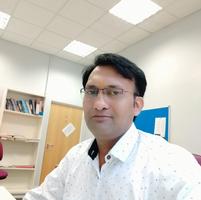
Reflections by Leslie Kirkley Visiting Researcher
Vimal Chandra Verma
By the year 2050, almost 20 percent of India’s population will be aged 60 years and above, and there is a growing awareness of the need to understand the needs and aspirations of this population. My stay as a Leslie Kirkley Visiting Researcher at the Oxford Institute of Population Ageing helped me to develop an in-depth knowledge of the psychology of ageing consumers.
One of the things I appreciate most about my time at the Institute of ageing was the atmosphere, which was extremely friendly. Faculty members and all staff were very cordial, helpful and inspiring, and I feel very fortunate to have experienced the world class faculty and facilities at the University.


